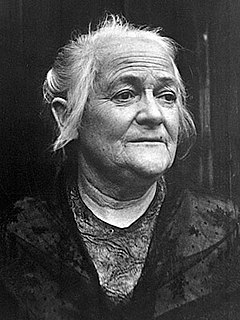A Quote by Jean Vanier
We have to remind ourselves constantly that we are not saviours. We are simply a tiny sign, among thousands of others, that love is possible, that the world is not condemned to a struggle between oppressors and oppressed, that class and racial warfare is not inevitable.
Related Quotes
But almost always, during the initial stage of the struggle, the oppressed, instead of striving for liberation, tend themselves to become oppressors, or sub oppressors. The very structure of their thought has been conditioned by the contradiction of the concrete, existential situation by which they were shaped. Their ideal is to be men; but for them to be men is to be oppressors
In our struggle against racial segregation in Montgomery, Alabama, I came to see at a very early stage that a synthesis of Gandhi's method of nonviolence and the Christian ethic of love is the best weapon available to Negroes for this struggle for freedom and human dignity. It may well be that the Gandhian approach will bring about a solution to the race problem in America. His spirit is a continual reminder to oppressed people that it is possible to resist evil and yet not resort to violence.
Condemning class struggle does not mean condemning every possible form of social conflict. Such conflicts inevitably arise and Christians must often take a position in the "struggle for social justice." What is condemned is "total war," which has no respect for the dignity of others (and consequently of oneself). It excludes reasonable compromise, does not pursue the common good but the good of a group, and sets out to destroy whatever stands in its way.
To see ourselves as others see us can be eye-opening. To see others as sharing a nature with ourselves is the merest decency. But it is from the far more difficult achievement of seeing ourselves amongst others, as a local example of the forms human life has locally taken, a case among cases, a world among worlds, that the largeness of mind, without which objectivity is self-congratulation and tolerance a sham, comes.
When the Democrats are attacked for [inciting class warfare] they shrink back. They don't say what obviously should be said, "Yes, there is class warfare. There has always been class warfare in this country." The reason the Democrats shrink back is because the Democrats and the Republicans are on the same side of the class war. They have slightly different takes. The Democrats are part of the upper class that is more willing to make concessions to the lower class in order to maintain their power.
Dare I speak ,to oppressed and opressor in the same voice? Dare I speak to you in a language that will move beyond the boundaries of domination- a language, that will not bind you, fence you in, or hold you? Language is also a place of struggle. The oppressed struggle in language to recover ourselves, to reconcile, to reunite, to renew. Our words are not without meaning, they are an action, a resistance. Language is also a place of struggle.







































